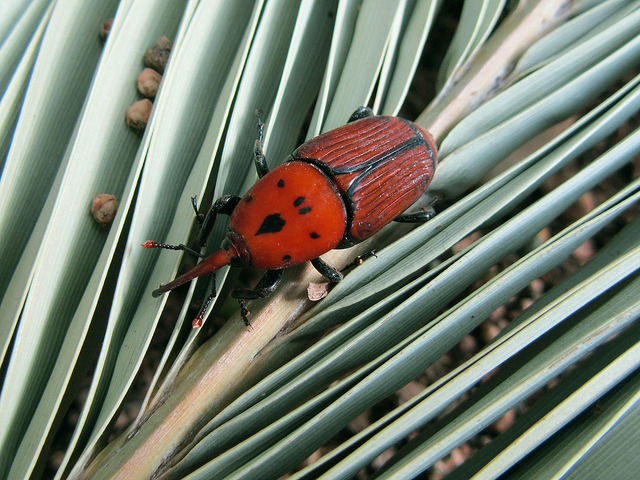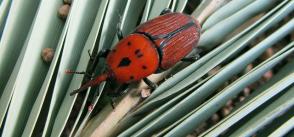
Panic over the red devils threatening to strip Tunisia of its grand palm trees
A red palm weevil infestation is decimating trees and posing a threat to the country’s date crop, a mainstay of the fragile economy.
It’s an unlikely but very real crisis for a country with a teetering economy: a tiny red devil is invading Tunisia and it could cost hundreds of thousands of people their livelihoods.
Morched Garbouj, president of a Tunisian environmental group, smiled as he told the popular legend of how the red palm weevil first arrived in Tunisia. “Some people say that it was the former dictator Ben Ali’s son-in-law who brought it here. He was known for bringing in exotic animals, exotic trees, that kind of thing.” He points to the fact that the area suffering the greatest devastation is in Carthage, around the presidential palace. “Well, maybe it’s true!”
The timing would fit. As the country was in the throes of revolution during the turbulent months of December 2010 and January 2011, the grand palm trees lining the boulevards of the upmarket suburb of Carthage began to die. From there, the infestation spread. Six years later – and despite what successive governments have claimed to be their best efforts – the infestation continues to spread, decimating palm trees in the north and gradually encroaching upon the vital crops in the south where lives depend on dates.
Tunisia leads the world in date exports. According to the ministry of agriculture, there are 5.4 million palm trees within the country and, while not all contribute to the $231m (£179m) that dates generate in exports annually, all are at risk from the spread of the weevil.
Read the full article by Simon Speakman Cordall via The Guardian.
[Photo by Katja Schulz | Flickr]







